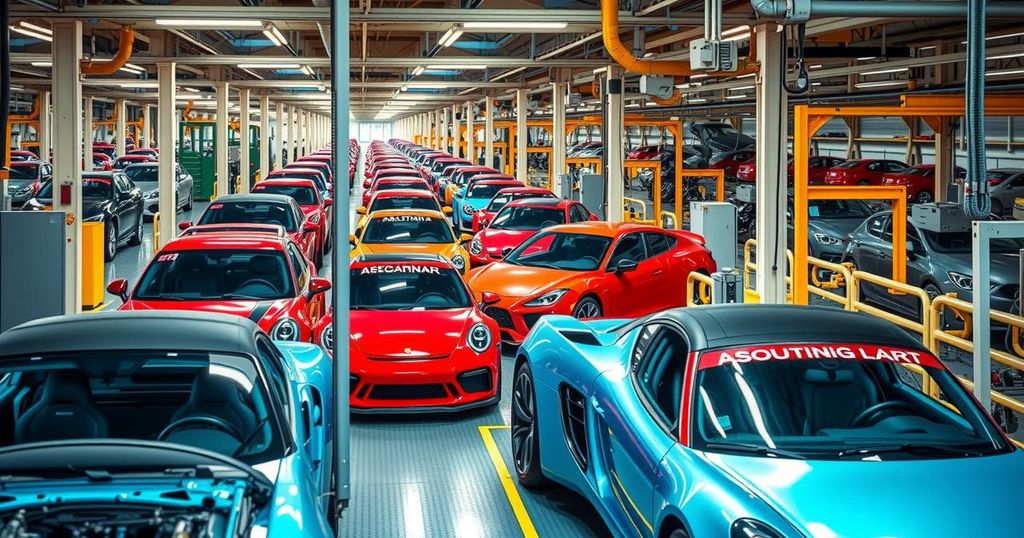Argentina’s automotive sector saw production rise to 42,419 units in February, marking a 41.1% increase from January. Exports increased by 102.1%, reaching 22,496 vehicles, while sales surged 33.8%, totaling 45,617 units. ADEFA attributes this growth to recent national tax reductions and emphasizes the need for local governments to implement similar measures.
Argentina’s automotive sector demonstrated remarkable progress last month, with production reaching 42,419 units. This represents a 41.1% increase from January and a 13.1% rise compared to February 2024, according to a recent report from the Association of Automotive Manufacturers (ADEFA). Furthermore, vehicle exports increased to 22,496 units, marking a substantial 102.1% improvement from January, although there was a 4.6% decrease from February 2024.
Wholesale sales to dealers also experienced significant growth, totaling 45,617 units. This figure reflects a 33.8% increase from January and a 37.3% rise from the same period last year. Over the initial two months of this year, production surged by 20.5%, reaching 72,477 units, even as exports experienced a downturn of 13.5%, totaling 33,628 units relative to the same timeframe in 2024. Sales for January and February combined reached 79,706 units, indicating a 62.1% increase year-on-year.
Martin Zuppi, President of ADEFA, credited the sector’s robust performance to recent tax reductions enacted by the national government. He emphasized the need for local governments—provinces and municipalities—to implement similar tax relief measures to enhance competitiveness within the industry.
He highlighted that taxes in Argentina are imposed at various levels, including national, provincial, and municipal. If local legislatures were to reduce taxes such as property taxes or local fees, it could lower expenses for automotive firms and boost exports.
Zuppi remarked, “With 18 working days of activity and even with some plants in recess due to vacations, as well as due to adaptation processes for new investments, the sector recorded a good performance in line with what was anticipated last month.” Furthermore, he stated, “It is positive to observe the progress in the agenda items we have been working on together with the authorities. Any reduction in the tax burden generates an improvement in competitiveness and recovery of activity levels in all its variables.” He underscored the necessity for local governments to contribute to strengthening the industry’s export profile, ensuring its long-term viability.
In summary, Argentina’s automotive sector is experiencing a notable revival marked by increases in production, exports, and dealer sales. ADEFA’s reports indicate that governmental tax reductions have fostered this growth. To further enhance the industry’s competitiveness, it is crucial for local governments to follow suit with tax alleviations. This collective effort can ensure the sustainable development of Argentina’s automotive industry.
Original Source: en.mercopress.com




